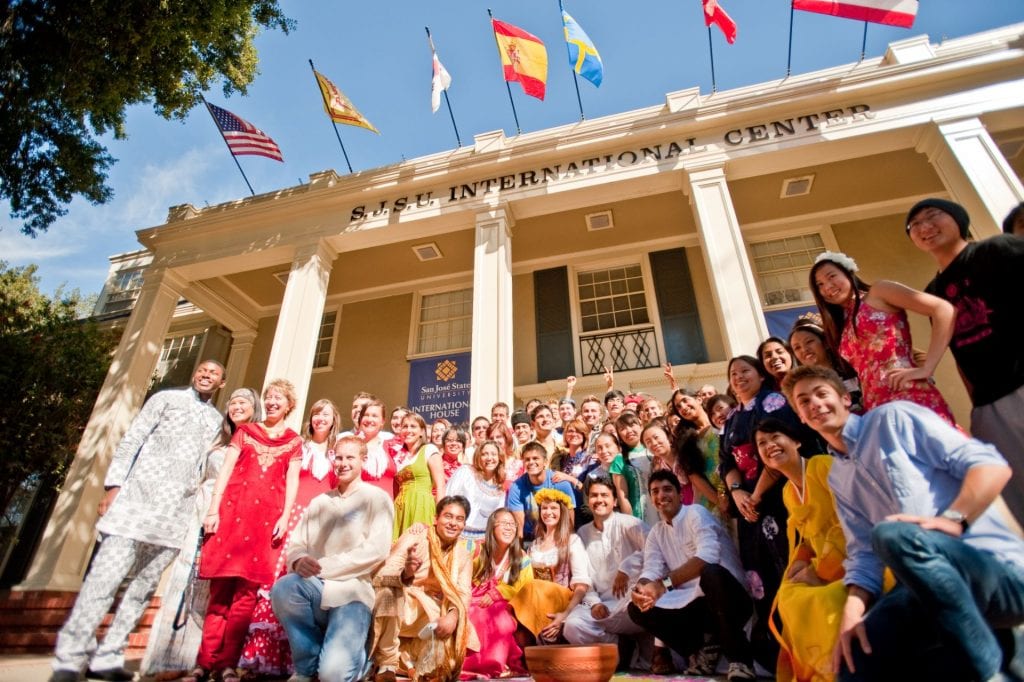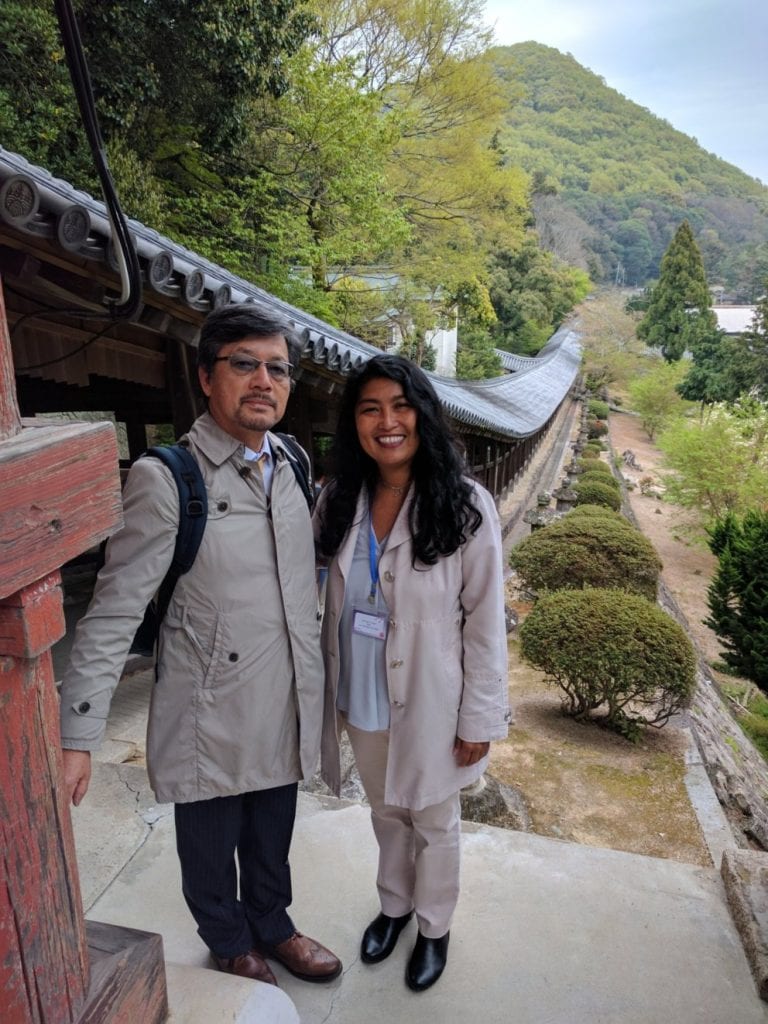Dr. Mary A. Papazian
At San Jose State, part of the educational mission is to develop global citizens. But what exactly does this mean?
Preparing our students for global futures goes far beyond the thousands of international students at both the undergraduate and the graduate levels that we enroll each year.
In fact, it even goes beyond the number of students who study abroad, though we encourage that.
When journalist and author Thomas Friedman famously asserted that “the world is flat,” he meant, at least in part, that industry had evolved into a vast and global—yet interconnected—supply chain that extends across nations and continents.
We are educating students who will be a part of our “flat” world. The faculty and senior leadership here at San Jose State recognize that we are living in a global economy—a global society—and that our curricula must consistently take into account the global aspects of every academic discipline. 
Take a look around and consider any corporate entity these days, large or small. Virtually all of them have international divisions, customers based outside the U.S., or both.
For the students who we are educating, that means they almost certainly will need to understand cultures different from their own if they are going to be successful, even if they never leave the Bay Area.
Perhaps, for example, they are studying technology product development. They may very well be creating technical solutions for customers in Central America. Or maybe they are earning a degree in health sciences and decide to enter the health care field in Vietnam. In either scenario, we would be doing them an educational disservice if we did not help them to understand the cultures and people of those nations.
When our students study abroad, they not only are learning about cultures and people who could represent a possible customer base, but they also have opportunities to learn multiple ways of thinking, cultural values and traditions and different approaches to solving problems that may be new to them. They can then take that learning and apply it to their studies, giving them a more well-rounded education that will serve them—and the organizations they eventually work for—well.
I just returned last week from a visit to Hong Kong, where I spent time with potential academic partners and SJSU alumni. I met one recent 2018 graduate, Kaleinani Perry, who had travelled to Hong Kong on a Thompson Global Internship scholarship through the Lucas College and Graduate School of Business. This scholarship was established by SJSU alum Jim Thompson (’62, Aeronautics Operations) and enables six students per year to intern in the Hong Kong offices of the logistics company he started in Asia many years ago, Crown Worldwide. Jim was so impressed by Kaleinani that he hired her full-time, and she now is working at Crown’s Hong Kong office.
Illustrating how one SJSU alum can create an opportunity for another as they help each other change the world, Jim and Kaleinani are the epitome of Spartan Pride.
Our College of Professional and Global Education offers many great examples of how an immersive educational experience in a different culture, even one that lasts less than a full semester, can benefit our students.
In one instance, a group of urban planning students from SJSU traveled to Brazil on a faculty-led program and worked alongside community members and local city planners to research, consult and advise on local issues. This was an intentional and culturally immersive experience, one where the faculty leader, Rick Kos, knew that students would learn new, innovative concepts about urban design that would stretch their thinking and, ultimately, help show them that city planning goes on not just in San Jose but in other cities and countries, with different principles that they will be able to apply in their future professional lives.
In another example, the college’s dean, Ruth Huard, traveled to a sister city, Okayama, Japan, with San Jose City Council members in order to explore how their counterparts tackled transportation issues that mirror some of our own, issues such as development around Diridon Station, high-speed rail and other concerns.
We can give our students similar opportunities to engage with other cities and countries. No matter the discipline they are studying, there is a strong likelihood that there are others around the world who offer useful case studies, success stories and lessons-learned.
We strive to create study abroad experiences for those who wish to partake in such opportunities. However, while we recognize that not every student can travel abroad to have a global experience, we are working to reduce or eliminate barriers such as cost that might prevent it from happening.
As I noted earlier, we work to be very intentional in our global studies effort, and try to find synergies with countries and cities that align well with our mission.
Armenia, for instance, has a keen interest in entrepreneurship and industry—which represent strengths and interests of ours at SJSU—so what better partner is there than San Jose State to work with that emerging economy on joint opportunities? Vietnam, in addition to its interests in health disciplines, is also focused on social work and the welfare of its citizens, so we see them as a natural fit. The Gulf nations are another region we are looking at in terms of alignment, cultural understanding and opportunity for our students. And there are many more.
San Jose State already enjoys, of course, the richness and vibrancy that come along with being a culturally-diverse university. Helping our students become global citizens can only enhance and deepen the impact they have locally in their communities at home.
There is no doubt that there are challenges as we work to expand our global footprint with our academic programs. But we believe that those perceived barriers can be overcome.
After all, what can be more important these days than preparing our students for a new, global workforce?

